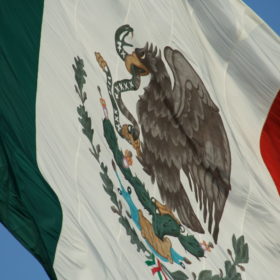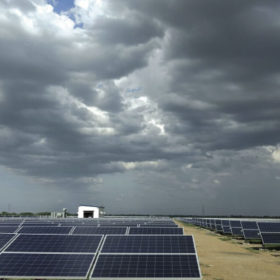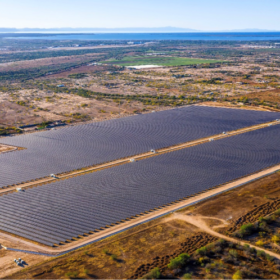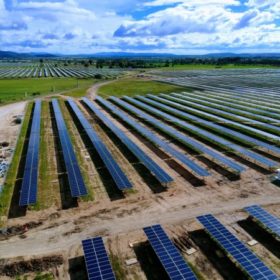PV leads the way as renewables threaten coal-fired power
With clean energy being generated at lower and lower prices around the world, solar power is playing a leading role in bringing the curtain down on coal, and will help the decarbonization of transport and space heating too.
Another solar PPA signed in Mexico
Zodiac Aerospace Equipo de Mexico has agreed to buy solar power from a 13 MW slice of the 80 MW Los Santos Solar II project in the Mexican state of Chihuahua.
Protectionist measures working as Chinese export destinations shift
While the world’s biggest solar manufacturers are confident there are plenty of alternative markets for a rising volume of panel exports, the message spelled out by first-quarter shipment figures is that protectionism works.
IEA warning against stagnation of renewables
After two decades of growth, the amount of newly installed renewable energy capacity is no longer rising and, despite a 7% growth in electricity generation from clean energy sources, global energy-related carbon emissions have risen 1.7%.
Region’s first utility scale solar-plus-storage project comes online in Mexico
Located in the town of La Paz, in Baja California Sur, the Aura Solar III plant has a generation capacity of 32 MW and includes a lithium-ion battery storage system with a capacity of 10.5 MW/7.0 MWh.
Mexico announces plans for 13 GW of new generation capacity – but no renewables in sight
The energy program will initially relate to combined cycle gas power plants with a capacity of 2.76 GW. No mention was made in electric utility CFE’s official statement of the possibility of increasing capacity by harnessing renewables.
Australia and India helped make up for Chinese solar retreat last year
The world had more than half a terawatt of PV generation capacity at the end of last year as emerging solar markets picked up the slack caused by Beijing’s subsidy about-turn to the tune of a 20% rise in installations outside China.
Tokyo Gas buys 50% stake in Engie’s Mexican renewable energy unit
The Japanese gas provider has acquired a 50% interest in four Mexican PV projects with a combined capacity of 746 MW. The new joint venture will further develop solar and renewables across the country.
Mexico wants to review contracts awarded in energy auctions
The announcement was given by Manuel Bartlett, the general director of state-owned utility CFE. He also said the current prices of renewables are a lie, while also stressing that their development is a factor determining higher electricity prices.
SPM opens new era for Mexican PV
The first Solar Power Mexico exhibition was a success, despite being held just weeks after the Mexican government announced the cancellation of its fourth long-term energy auction for renewables, along with general policy-related uncertainty for clean energy.









